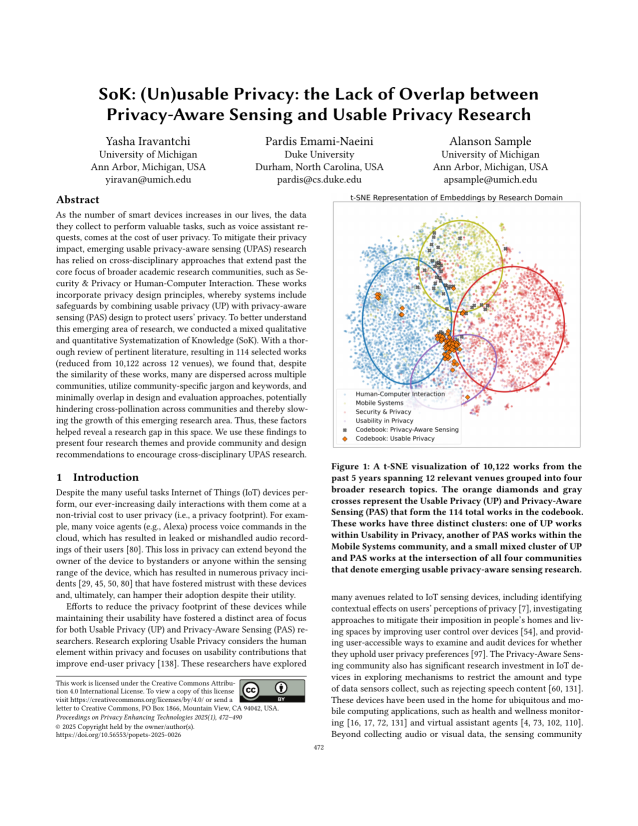SoK: (Un)usable Privacy: the Lack of Overlap between Privacy-Aware Sensing and Usable Privacy Research
Authors: Yasha Iravantchi (University of Michigan), Pardis Emami-Naeini (Duke University), Alanson Sample (University of Michigan)
Volume: 2025
Issue: 1
Pages: 472–490
DOI: https://doi.org/10.56553/popets-2025-0026
Artifact: Available, Functional, Reproduced
Abstract: As the number of smart devices increases in our lives, the data they collect to perform valuable tasks, such as voice assistant requests, comes at the cost of user privacy. To mitigate their privacy impact, emerging usable privacy-aware sensing (UPAS) research has relied on cross-disciplinary approaches that extend past the core focus of broader academic research communities, such as Security & Privacy or Human-Computer Interaction. These works incorporate privacy design principles, whereby systems include safeguards by combining usable privacy (UP) with privacy-aware sensing (PAS) design to protect users' privacy. To better understand this emerging area of research, we conducted a mixed qualitative and quantitative Systematization of Knowledge (SoK). With a thorough review of pertinent literature, resulting in 114 selected works (reduced from 10,122 across 12 venues), we found that, despite the similarity of these works, many are dispersed across multiple communities, utilize community-specific jargon and keywords, and minimally overlap in design and evaluation approaches, potentially hindering cross-pollination across communities and thereby slowing the growth of this emerging research area. Thus, these factors helped reveal a research gap in this space. We use these findings to present four research themes and provide community and design recommendations to encourage cross-disciplinary UPAS research.
Copyright in PoPETs articles are held by their authors. This article is published under a Creative Commons Attribution 4.0 license.

